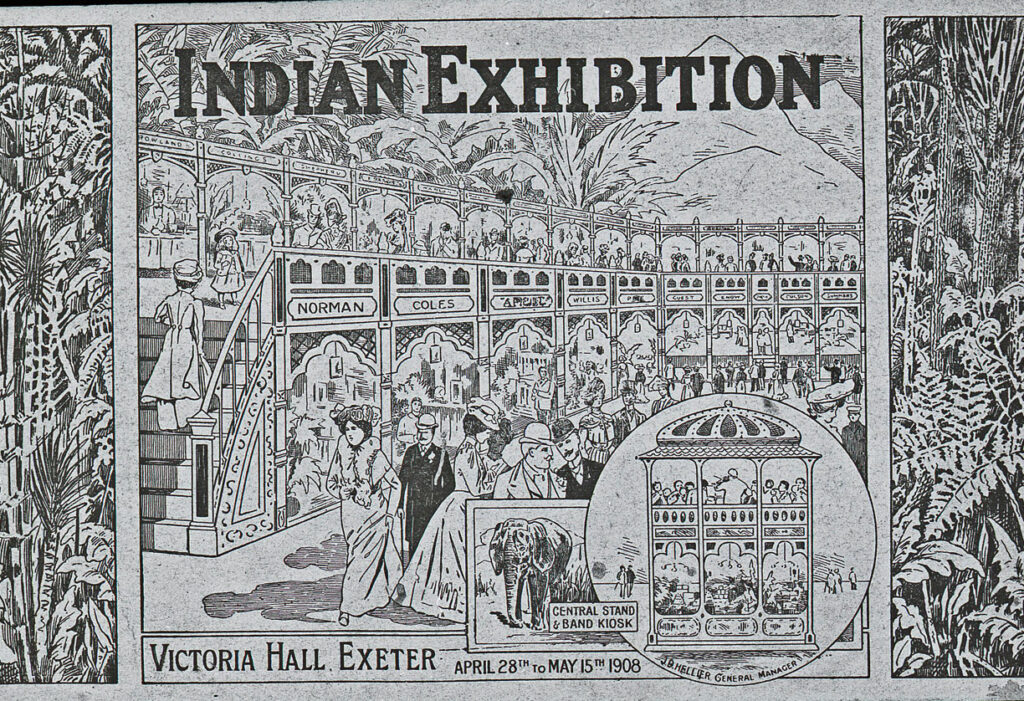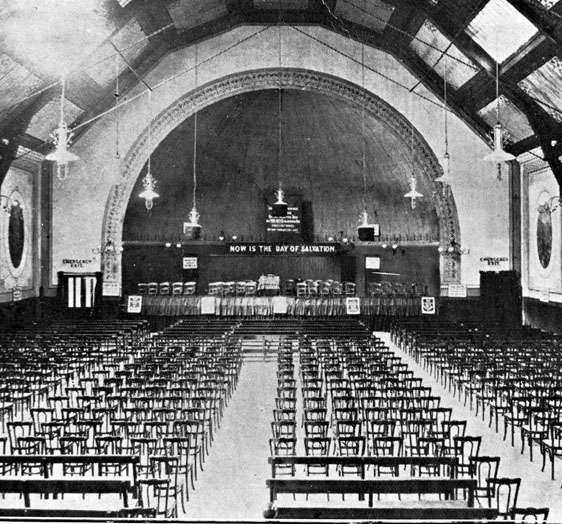Community reseacher – Abigail Robinson
This was shortly after moving pictures were shown in London by the Lumière brothers, the famous film pioneers. Forerunners of British film, R. W. Paul and Birt Acres, supplied the films.
Films about the Boer War were particularly popular and attracted large audiences. These ‘living picture shows’ continued to visit Exeter until cinemas were built around 1908.
Films with sound, also known as ‘talkies’, were attempted twice at Victoria Hall during 1901 but they proved unpopular. This may have been because the Hall had sound equipment unfit for such a large space or potentially due to the ‘talkies’ generally being unpopular with audiences at the time. However, other events were held at the Hall including an Indian exhibition in 1908 and a skating event in 1910.
On 6th October 1919 the building was destroyed by fire. A night watchman discovered the fire and called the fire station; Superintendent Pett took the call from New North Road and units were sent from St Thomas, Heavitree, Exwick, Whipton and Wonford. All the Hall’s windows were blown out and the fire damaged the side of the nearby Rougemont Hotel. The site became home to Rowe Brothers and Company and it is now part of Exeter College.
A visit to Exeter by the British Association for the Advancement of Science made it apparent that Exeter did not have a lecture hall capable of hosting a large number of people. This culminated with the foundation stone being laid in 1869 for a new building designed by C. J. Phipps. It opened later that same year and contained a lecture hall for an audience of 400.
In 1800 an air-driven concert organ was added. It was built by Willis and cost £2,000. The circular auditorium was transformed for the use of travelling circuses. In 1885 Wilson’s Great World Circus preformed for a six-week engagement. The building was also used by the 1st Devonshire Rifle Volunteers, trades unions, magic lantern shows and travelling, animated pictures. Victoria Hall showed the first film in Exeter. In 1896 John D. Ablett presented moving pictures for three nights.

